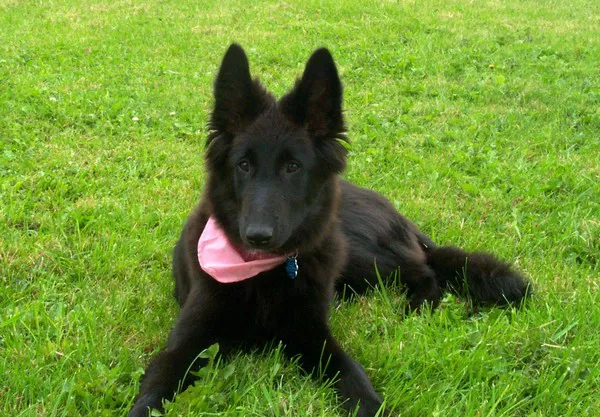The Airedale Terrier, often known as the “King of Terriers,” is a majestic and intelligent breed with a distinctive appearance and a strong personality. These dogs are one of the oldest and largest of the terrier breeds, with a rich history that spans back to the 19th century. While they are famous for their hunting prowess, they are also known to be affectionate, loyal, and energetic companions. But the question remains: Is an Airedale a good family dog? In this article, we will dive deep into the characteristics, temperament, and needs of the Airedale Terrier to help you decide if this breed is a good fit for your family.
1. Understanding the Airedale Terrier
Before evaluating whether an Airedale is a good family dog, it’s essential to understand the breed’s history, characteristics, and personality traits. The Airedale Terrier originated in the Aire Valley of Yorkshire, England, where it was bred to catch otters, wild boar, and other game. Its exceptional skills in hunting, water retrieval, and tracking made it a highly regarded working dog, and it quickly gained popularity for its intelligence and versatility. Over time, the breed became popular as a companion dog as well.
The Airedale is a large terrier breed, with males standing around 23 inches tall at the shoulder and weighing between 50 and 65 pounds. Females are typically slightly smaller. They have a distinct, wiry coat that requires regular grooming, and their classic “terrier” appearance is both elegant and sturdy. While their looks may be intimidating to some, their temperament is generally friendly and good-natured.
2. Airedale Temperament: The Good and the Challenging
The Airedale’s temperament is a mix of positive traits and some challenges that prospective owners need to be aware of. In general, Airedales are known to be:
Loyal and Protective: Airedales are very attached to their families and will often bond closely with their owners. They are naturally protective, making them excellent watchdogs. They will alert you to any potential intruders but usually do not display aggression without reason. A well-socialized Airedale is usually friendly with strangers but still retains its protective instincts.
Energetic and Playful: As a breed originally used for hunting and retrieving, Airedales are high-energy dogs that require plenty of exercise. They enjoy outdoor activities, and having a large, secure yard is ideal for this breed. They love playtime, and their boundless energy makes them enthusiastic participants in games like fetch, running, or even hiking with the family.
Affectionate and Social: Airedales generally enjoy being around people and can be very affectionate with their family members. They tend to get along well with children, though they might be a bit reserved or independent at first. Their social nature makes them a good choice for families who are active and can provide attention and care.
However, there are some aspects of the Airedale’s temperament that potential owners should consider carefully, especially if they have young children or other pets:
Stubborn and Independent: Airedales are known for their independent streak. They may not always be as eager to please as other breeds, which can make training a bit challenging for first-time dog owners. Consistent, positive reinforcement training methods work best with this breed. It’s important to establish clear boundaries and expectations early on.
Strong Prey Drive: Due to their hunting background, Airedales have a strong prey drive, and they may be prone to chasing small animals such as squirrels, rabbits, or even cats. This characteristic can make them less suitable for households with smaller pets unless they are introduced and trained together from a young age.
Barking and Digging Tendencies: Like many terrier breeds, Airedales can be vocal and may bark to alert their owners to perceived threats. While their barking isn’t usually excessive, it can be bothersome to neighbors if not managed properly. Additionally, Airedales have a tendency to dig, which can be problematic if they’re left unsupervised in the yard.
3. Airedales and Children: Are They Good with Kids?
One of the most important factors in determining whether an Airedale is a good family dog is how well they interact with children. In general, Airedales tend to be gentle and tolerant with kids, especially when properly socialized. Their size and playful nature can make them great companions for children who enjoy active play.
However, it is important to remember that Airedales are large dogs, and their strength can sometimes lead to unintentional roughness. An Airedale may accidentally knock over a small child during play, especially if the dog is overly excited or hasn’t been taught proper boundaries. Young children should always be supervised when interacting with any dog, including Airedales.
In addition, due to their independent nature, Airedales may not always enjoy being pulled on or handled too roughly. It’s important to teach children how to properly interact with dogs by being gentle and respectful. Early socialization and exposure to children can help ensure that the Airedale grows up to be well-mannered and comfortable with kids of all ages.
4. Airedales and Other Pets: What to Expect
Airedales can live harmoniously with other pets, but there are some considerations to keep in mind. As mentioned earlier, Airedales have a strong prey drive, which means they may not be the best choice for homes with small animals like rabbits, guinea pigs, or rodents. Their hunting instincts may lead them to chase or even harm these pets if not properly supervised.
When it comes to other dogs, Airedales can be either tolerant or dominant, depending on the individual dog’s personality. Early socialization with other dogs is essential to ensuring a peaceful coexistence. Introducing an Airedale to other dogs at a young age helps them learn how to interact appropriately with different breeds and personalities.
If you already have another dog in your household, it’s essential to consider the energy level and temperament of both animals. Airedales tend to get along well with other dogs that have a similar energy level, but they may be less tolerant of dogs that are overly submissive or that don’t respect their space.
5. Exercise and Activity Level: Keeping an Airedale Happy
Airedales are highly active dogs, and they require regular exercise to stay healthy and happy. Due to their history as hunting dogs, they have boundless energy and a strong need for physical and mental stimulation. If you have an active lifestyle, such as hiking, running, or outdoor adventures, an Airedale can be the perfect companion. They are up for any challenge and will keep you motivated to stay active.
Daily walks are essential for an Airedale to maintain their health and happiness. If you have a large backyard, they may be able to burn off some energy by running and playing there, but they should still be given regular walks to ensure they get enough exercise.
It’s also important to keep in mind that Airedales are highly intelligent, and they enjoy tasks that engage their minds. Interactive toys, puzzle feeders, and training exercises can help keep them mentally stimulated. Without sufficient exercise and mental challenges, Airedales can become bored, which may lead to undesirable behaviors such as digging, barking, or destructive chewing.
6. Grooming and Maintenance: What’s Involved with an Airedale?
Airedales have a distinctive coat that requires regular grooming to keep them looking their best. Their wiry coat sheds minimally, but it does need to be hand-stripped or regularly clipped to maintain its texture and appearance. Hand-stripping is a technique in which dead hair is plucked from the coat, and it helps preserve the breed’s characteristic wiry texture. Some owners prefer to have their Airedale’s coat clipped at a groomer, but hand-stripping is considered the best way to maintain the coat’s quality.
In addition to regular grooming, Airedales need their ears cleaned and their nails trimmed regularly. It’s also essential to keep an eye on their dental health, as Airedales can be prone to dental issues like any other breed. Brushing their teeth a few times a week will help prevent plaque buildup and maintain their overall health.
Airedales are generally considered a low-shedding breed, which can be a plus for people with allergies. However, the grooming needs can be time-consuming, so potential owners should be prepared for the maintenance required to keep their Airedale looking good.
7. Training an Airedale: Challenges and Successes
Training an Airedale can be both rewarding and challenging. Due to their independent nature, Airedales may not always be as eager to please as some other breeds, and they can be a bit stubborn. However, they are highly intelligent and capable of learning a variety of commands and tricks when trained using positive reinforcement methods.
Consistency and patience are key when training an Airedale. It’s important to start training early and establish clear boundaries and expectations. Airedales respond well to training that incorporates praise, rewards, and short, fun training sessions. Positive reinforcement techniques will help strengthen the bond between you and your dog while ensuring that they grow up to be well-behaved.
If you are new to dog training, working with a professional trainer who has experience with terriers may be helpful. A trainer can assist with behavior issues such as barking, digging, and obedience.
8. Health Considerations for an Airedale
Airedales are generally a healthy breed, but like all dogs, they can be prone to certain health conditions. Some of the most common health concerns in Airedales include:
Hip Dysplasia: A hereditary condition where the hip joint doesn’t develop properly, leading to pain and mobility issues.
Hypothyroidism: A condition in which the thyroid gland does not produce enough hormones, leading to weight gain, lethargy, and skin problems.
Addison’s Disease: A disorder of the adrenal glands that can cause lethargy, vomiting, and changes in appetite.
Ear Infections: Due to their floppy ears, Airedales can be prone to ear infections, so regular ear cleaning is necessary.
Regular veterinary check-ups, a healthy diet, and proper exercise are essential to keeping your Airedale in good health. If you adopt an Airedale, be prepared for a long-term commitment to their care, as their average lifespan is between 10 and 12 years.
Conclusion
In conclusion, an Airedale can make an excellent family dog for the right household. They are loyal, protective, energetic, and affectionate, and they generally get along well with children and other pets when properly socialized. However, their independent nature, strong prey drive, and grooming needs require dedicated attention from their owners.
If your family enjoys outdoor activities, has the time and patience to train a dog, and is prepared to handle an energetic and sometimes stubborn breed, the Airedale could be a perfect fit. With the right environment and proper training, an Airedale Terrier can become a loving, devoted, and active member of your family.
Before adopting an Airedale, consider whether your lifestyle and home environment are suitable for this active, intelligent breed. If so, you’ll be rewarded with a loyal, playful, and loving companion who will make a wonderful addition to your family for many years to come.
Related Topics:


















